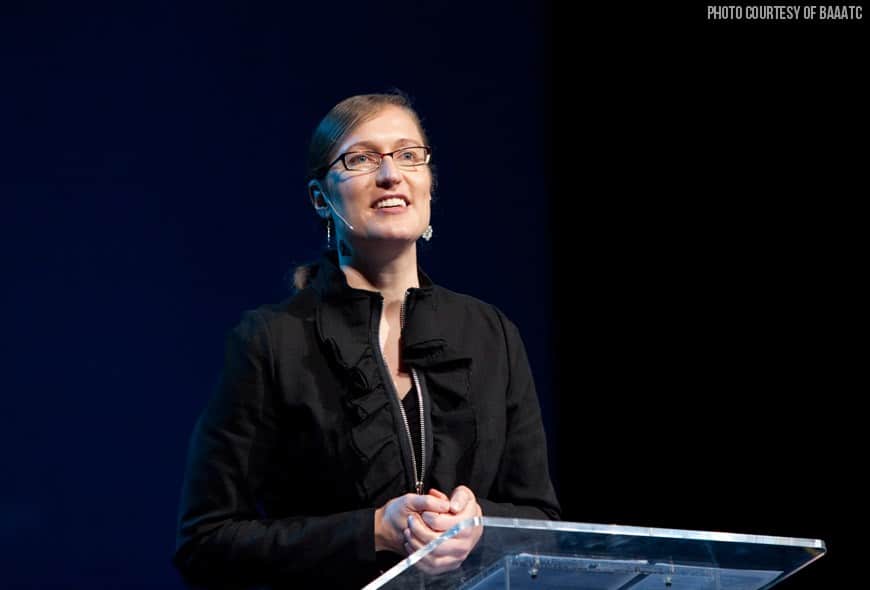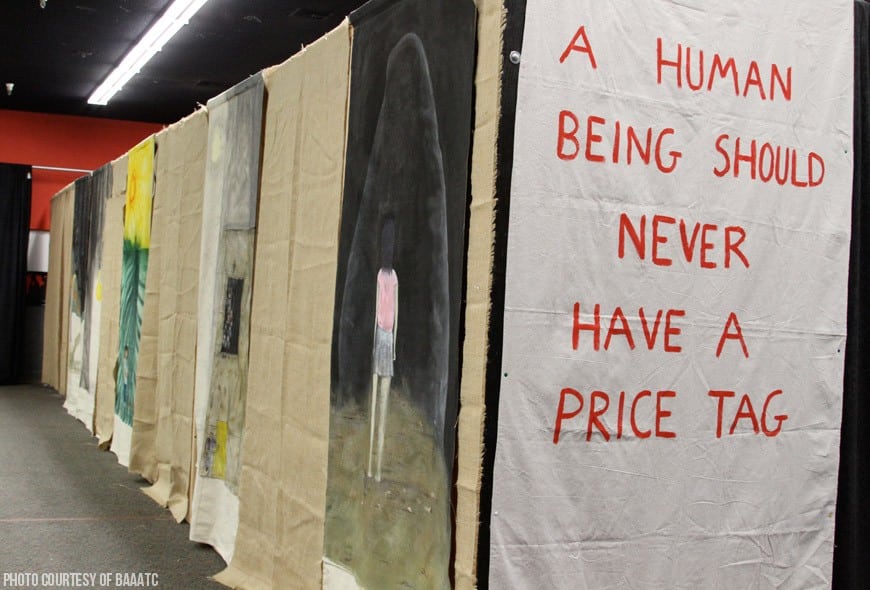With Superbowl 50 scheduled to take place in Santa Clara next February, many residents and businesses are gearing up for the event. But most aren’t aware of one frightening truth about the biggest game of the year: it’s also the largest event of the year for human trafficking.
From prostitution to temporary workforces, the Superbowl attracts all types of forced labor. Consider this in addition to the fact that 40 percent of all trafficking on the west coast comes through the Bay Area and that San Francisco is one of the top 10 worst child trafficking cities in the country, and it becomes clear that the Bay Area has a lot of preparing to do for the big day. One California woman is seeing to that.
Meet Betty Ann Boeving
In 2004, after a bad horseback riding accident left Betty Ann Boeving on disability at age 26, she had a lot of time to think. A former college athlete, her injuries left her frustrated for many reasons, one of which was the inability to act as a changemaker in the world. But an answer to her dissatisfaction arrived in the form of a visit to her church by Gary Haugen, president and founder of International Justice Mission. Three months after her first meeting with Haugen, Boeving became IJM’s first west coast representative.
Boeving spent the next few years combating human trafficking internationally. In 2006, she climbed Mt. Kilimanjaro to raise $45,000 to fight child trafficking across Africa and the Middle East. But as she continued to read about human trafficking, she began to realize the extent of the issue is not just in places halfway around the world, but on the home front.
“There was no dialogue about what was going on domestically,” Boeving tells MiLLENNiAL. In a country where an estimated 10,000 or more people are working as forced laborers at any given time, she felt something had to be done to bring awareness to the fact that slavery happens not just globally, but locally.
Bringing awareness to the home front
In 2009, Boeving hosted the first Freedom Summit in Mountain View, CA on the same weekend that brothel raids were being conducted 50 miles away in her hometown of Danville, CA. At the time, nonprofits dedicated to fighting human trafficking were often competing for attention and resources. The Freedom Summit was formed to create unity between these organizations because, as Boeving believes, in order to fight a problem as organized as human trafficking, the response must be just as well-structured.
This year the Freedom Summit will take place on May 9 at Levi’s Stadium and bring together over 50 nonprofits dedicated to ending human trafficking. The event will feature speakers such as Bradley Myles, CEO of the Polaris Project and Justin Dillon, founder and CEO of Made in A Free World.
Fighting human trafficking every day
For the other 364 days of the year, the Bay Area Anti-Trafficking Coalition, Boeving’s nonprofit, is available to help anyone and everyone who wants to join in the fight against human trafficking.
“We have the individual activist in mind. We work to equip that person to both understand what that issue is and how they are uniquely crafted and have the gifts and resources in their life to be able to fight it from a certain perspective,” Boeving says.
Whether you’re a doctor, lawyer, or high school student, Boeving says that BAATC can provide you with ways to help end forced labor. One initiative they’ve taken is to train Transportation Security Administration agents to identify human trafficking victims.
“Air travel is the fastest way to get somebody out of their community of support,” Boeving explains. Adults do not have to use identification to prove their relationship to an underage child traveling with them, a scary fact in a country where pimps prey on children as young as 12.
But it isn’t just TSA agents who benefit from this knowledge. Boeving encourages everyone to be aware of telltale signs of someone who is being kept against their will, which can include ravenous eating, not being allowed to go to the bathroom, and being improperly dressed.
Knowing the signs is vital to bringing an end to forced labor: America’s first ever human trafficking prosecution occurred in 2009 in Walnut Creek, CA when a group of teachers alerted authorities after noticing that a nanny who dropped off two students every morning was constantly disheveled. An investigation showed that the nanny had been smuggled into the United States by the students’ mother with help from Peruvian nationals.
Boeving also encourages those who want to help to know how to recognize homes or establishments that may be housing forced laborers or serving as a front for human trafficking. Signs to look for include bars installed inside of windows instead of outside, or cars gathering around businesses such as salons, massage parlors, or restaurants shortly before closing time.
So what do you do if you recognize these signs? Boeving recommends calling the National Human Trafficking Resource Center at 1-888-373-7888.
“You may be the last person who sees them before they disappear in a world of exploitation,” Boeving insists.
How you can put an end to human trafficking
Because the staggering statistics can make the fight against human trafficking appear all but futile, Boeving provides a plan of action for what you can do to help in 10 minutes, 10 days, or 10 months.
In 10 minutes, you can save the phone number for the National Human Trafficking Resource Center in your phone. In 10 days, you can check your slavery footprint, evaluate your pantry, and read a book or watch a movie to further your knowledge. In 10 months, you can sign up for training, set up a movie screening, or attend a Freedom Summit.
“This issue is big enough that anyone can connect to it no matter what their skills are,” Boeving says. “You’re equipped just as you are.”
To learn more about Betty Ann Boeving or to get involved with the Bay Area Anti-Trafficking Coalition, visit BAATC.org



